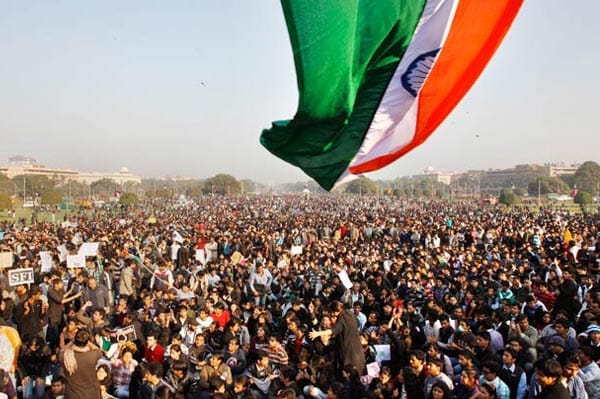Empowering Citizens...

I. “A democracy needs citizens, not clients. Clients are people who are dependent and controlled by their leaders and who understand themselves in terms of their dependencies and who wait for others to act on their behalf. Citizens, on the other hand, are people who understand their own problems in their own terms and perceive their relationships with one another and believe in their capacity to act. Good citizens make strong communities. Strong communities make strong States and strong Nations.
II. When India achieved independence from foreign rule, the people became the sovereign masters of the country. It was “we, the people of India” who gave unto themselves a constitution and provided in it space for the legislative, executive and judicial systems to function. The role of the
citizens is not to be seen as mere tax payers but as active participants evolving policies and plans and in monitoring performance of the government. Citizen governance is meant to translate the concept of sovereignty of the people into a reality. The government is seen as an equal partner with the citizens.
III. In a democracy, citizens, really are the “owners” of public services. Through tax payments, citizens are investors in public services and publicly owned assets. A key question from the owner’s perspective with respect to government performance is whether government is getting job done. Citizen shareholders must have understanding about how the citizen’s concerns being met by public services? Is the job being done fairly and ethically? Does the result provide value for the public money spent? In response to these concerns, citizens deserve good information offered in a format and manner that is readily understood. Being sensitive to citizens as shareholders or owners requires that Government should use citizen concerns and interests as one of the shaping factors to develop “owners’ reports” on public service performance.
IV. Citizens are expected to participate in public decision processes and they are also to be provided with performance information and need to make intelligent use of it. This is possible only if they are provided with contextual knowledge and some level of training or technical assistance to help them participate wisely and effectively. The experience of the communities that have involved citizens in identifying priority issues and developing goals and performance indicators confirms that citizens can participate intelligently in these processes without having the years of technical knowledge and expertise that can be expected of service managers. However, the more deeply citizens are involved in these processes, the more important it is to help them develop their capacity to understand issues, work with performance data, and make good choices.
V. In Monarchy it is the King and the Subjects and in Democracy it is the Government and the Citizens. In a monarchy, subjects do not have inalienable rights and freedom, all power-including the power over another individual- is vested singularly into one man/women who is the king/queen. Unlike a subject under a monarchy, in democracies, power lies in the hands of the people, and institutions and offices are created for the preservation of power in the people. An example would be the constitution which guarantees the rights of citizens. Power is not
invested in one man, therefore power is vested in every individual, making them citizens and not subject, to any one person.
VI. What was spoken on November 25, 1949, by Dr Ambedkar in his last speech to the Constituent Assembly of the need to give up the grammar of anarchy, to avoid hero-worship, and to work towards a social – not just a political – democracy resonate the scenario today.
We must make our political democracy a social democracy as well. Political democracy cannot last unless there lies at the base of it social democracy. Social democracy means a way of life which recognises liberty, equality and fraternity as the principles of life for all the citizens. These principles of liberty, equality and fraternity are not to be treated as separate items in a trinity. They form a union of trinity in the sense that to divorce one from the other is to defeat the very purpose of democracy.
Liberty cannot be divorced from equality, equality cannot be divorced from liberty. Nor can liberty and equality be divorced from fraternity. Without equality, liberty would produce the supremacy of the few over the many. Equality without liberty would kill individual initiative. Without fraternity, liberty would produce the supremacy of the few over the many. Without fraternity, liberty and equality could not become a natural course of things. It would require a constable to enforce them. On the social plane, we have in India a society based on the principle of graded inequality which we have a society in which there are some who have immense wealth as against many who live in abject poverty.
30 - Dec - 2018





